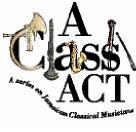

Huntley Brown - Contributed
The following is the first of a two-part series on pianist Huntley Brown. Part two will be carried next week.
A conversation with a bartender helped to push teenage keyboardist Huntley Brown away from playing in night clubs and hotels solely to entertain audiences.
"Today, my purpose is to lead people to a personal relationship with Jesus Christ," he told The Sunday Gleaner. "If people are not hearing about Jesus through my music and at my concerts, then I am not being obedient to my calling."
At the time of the conversation, Brown, who was born in 1963, was a recent graduate from high school and just starting out on a musical career. Now, he is a seasoned, university-educated musician (with a bachelor's degree in piano performance from Judson College, Elgin, Illinois, and a master's degree in piano performance and pedagogy from Northern Illinois University) and the pianist for Ruth Graham and Friends Ministries. He lives with his wife and daughters in Aurora, Illinois, near Chicago.
Brown said he had the conversation because he had "made a deal" with God. Brought up in Brown's Town, St Ann, in a Christian home, he had embraced the Christian life early and despite the good money he was earning from his gigs, he was uneasy about the lyrics of some of the songs in the repertoire of his band.
"We were singing songs that I knew did not glorify God," he said. "It came to the point where I had to ask myself how as a Christian I could justify playing these kinds of songs. For example, we were singing and playing songs about getting high. How could I as a true Christian play songs about drugs?"
Besides, he kept remembering his mother's words: "Huntley, only what is done for Christ will last."
So Brown bargained with God that while playing in hotels and clubs, he would talk to people about Jesus. During a band break one night, he tried talking to the bartender. The attempt backfired.
turning point
"The bartender stopped me in my tracks and in great Jamaican fashion said I was no Christian. He told me what he thought a Christian should be, and said what he saw in me onstage did not line up. I could not defend myself because he was right. This incident was the turning point in my life, and very shortly after that I gave up the band."
But he had learnt much from his stint in clubs and hotels, Brown admitted.
"I learned how to take an audience on a musical journey. A typical evening would begin with the band playing music for people to sit back and enjoy. Then we would pick the tempo up and the music caused them to hit the dance floor. We would then slow the pace down and the audience would follow our every dictate. Learning how to direct these musical journeys is truly an art, and when executed properly, people leave with a feeling of satisfaction."
Waxing philosophical, Brown stated: "Musicians are worship leaders. We all lead people in worship. It could be worship of self, drugs, alcohol, or God, but we all lead worship."
Asked if he was tempted, after studying classical music at university, to become a classical concert pianist, Brown said he were not. From early in his life, he knew his purpose lay elsewhere.
"I wanted to use music in all its forms as a vehicle to communicate the gospel worldwide. If you are going to go fishing, you have to use bait the fish likes. If I were strictly a classical pianist my message would be limited to only those who love classical music."
He added: "I don't think there is anything wrong with Christian musicians playing secular music. What is wrong is Christian musicians playing music with lyrics that dishonours God."
In fact, he believes that classical music and other forms, even dancehall, helps people spiritually. It's not the music, per se, but the lyrics, which can cause harm.
"Whether you are listening to classical, reggae or jazz, if the anointing of the Holy Spirit is on the song, it can change your life. The anointing on music is what makes the difference," Brown stated.
finger technique
He gave an example: "I was privileged to give a lecture in Amsterdam for the Billy Graham Association on music and evangelism and during the seminar, a young man told us he got saved listening to Christian rap music."
Brown advocates classical music studies for musicians, whatever their speciality, pointing out, "Classical music helps to build finger technique, dexterity, sight-reading and rhythmic and harmonic concepts which are very helpful for playing jazz and other genres of music. Laying a classical foundation is not only very helpful, but I believe is a must for every serious musician."
In recent years, Brown has added a new facet to his ministry, teaching and offering seminars on music and worship. He often travels with the International School of Evangelism team of the Graham Association. He was also a lecturer and performer at the First International Gospel Music Festival in Italy.
He regularly returns to Judson University to serve as a guest lecturer in the worship arts programme, offering insights and experiences to students who will, someday soon, be leading worship around the world.
Judson named him alumnus of the year in 2003 and he earned the Top Caribbean Gospel Instrumentalist Award for 2005 and 2006.